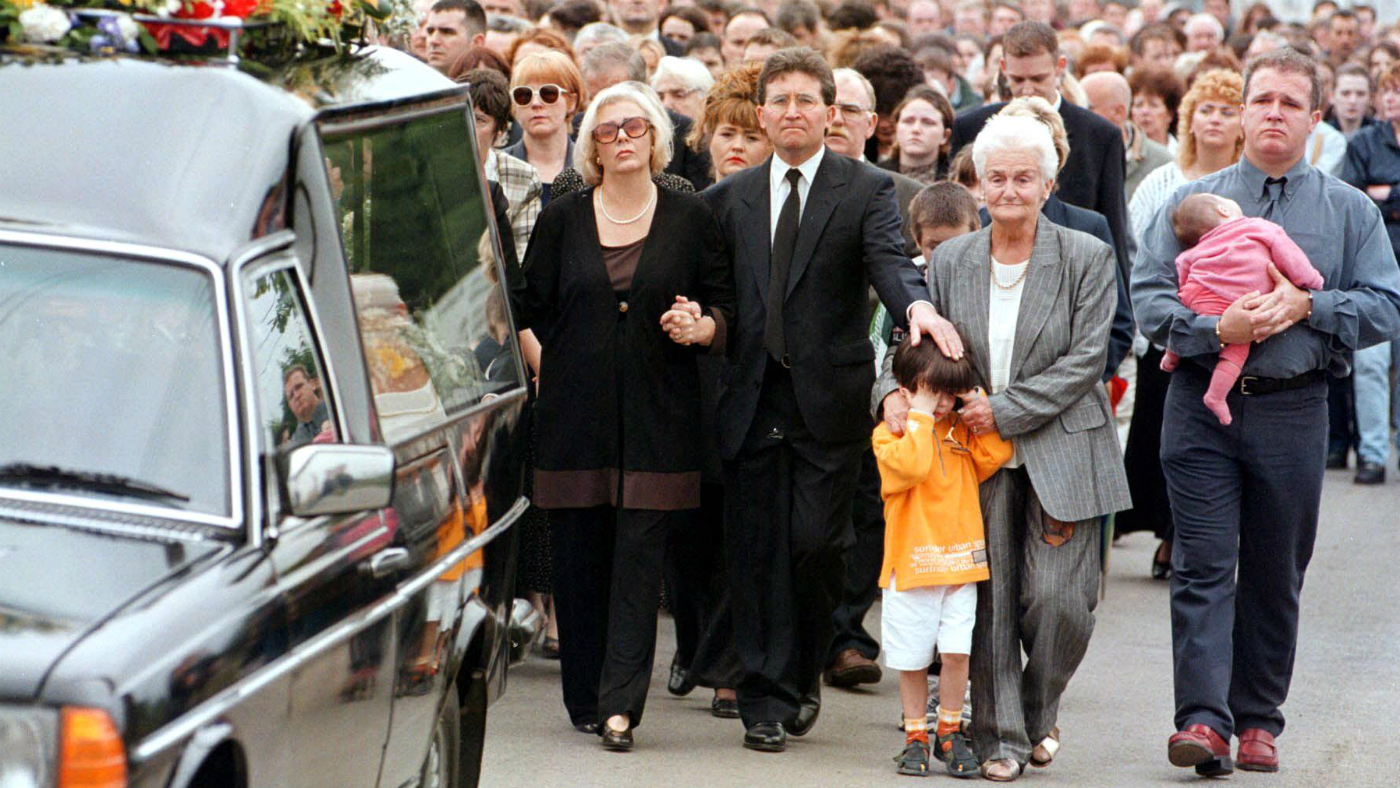Omagh bombing: atrocity remembered 21 years on
Families of the victims say their relatives have still not received justice

A free daily email with the biggest news stories of the day – and the best features from TheWeek.com
You are now subscribed
Your newsletter sign-up was successful
The single deadliest incident of the Troubles took place 21 years ago this week, when a car bomb exploded in the centre of the Northern Irish town of Omagh.
The attack, carried out by the Real IRA on 15 August 1989, claimed the lives of 29 people, including a woman pregnant with twins, and injured another 220.
More than two decades later, families of the victims say their relatives still haven’t received justice, and questions over what the UK, Irish and US intelligence services knew remain unanswered.
The Week
Escape your echo chamber. Get the facts behind the news, plus analysis from multiple perspectives.

Sign up for The Week's Free Newsletters
From our morning news briefing to a weekly Good News Newsletter, get the best of The Week delivered directly to your inbox.
From our morning news briefing to a weekly Good News Newsletter, get the best of The Week delivered directly to your inbox.
The Week examines the events around the attack.
What happened in Omagh?
A car bomb exploded in a crowded shopping area in the centre of the town on 15 August 1998, killing 29 people and injuring 220 more. Nine children and two unborn babies were among the dead.
It was the greatest single loss of life in any terror atrocity during the Troubles and almost derailed the Good Friday peace agreement, signed earlier that year.
A free daily email with the biggest news stories of the day – and the best features from TheWeek.com
The death toll was greatly increased as a result of an unclear warning message given to police 40 minutes before the explosion, which led to civilians inadvertently being moved closer to the bomb by officers trying to lead them to safety, the BBC reports.
Who was responsible?
The bomb, containing 230kg of fertiliser-based explosives, was hidden in a Vauxhall Cavalier car by members of the Real Irish Republican Army (Real IRA), who opposed the signing of the Good Friday Agreement with the UK.
In the days following the attack, the group apologised, insisting that civilians had not been the intended target.
No one has been convicted of the bombing. However, the Omagh Support and Self Help Group, representing the victims’ relatives, successfully sued four republicans, who were found liable for the bombing at a civil trial in 2009.
There have been “long-standing allegations that intelligence and investigative failures by authorities on both sides of the border allowed the bombers to both carry out the crime and get away with it”, Sky News reports.
In August last year, relatives of the victims announced that they would sue George Hamilton, the chief constable of the Police Service of Northern Ireland, for failings that they believe allowed the culprits to walk free. They are suing the current police chief because he has legal responsibility for the actions of both his service and its predecessor, the Royal Ulster Constabulary, explains the Belfast Telegraph.
Michael Gallagher, who lost his son, Aiden, in the bombing, said: “We need to know why they have failed so spectacularly on the worst atrocity of the Troubles… What we want is for the people behind this crime to be put in jail.”
Gallagher told the High Court in Belfast in May that a public inquiry was needed to determine if the tragedy could have been avoided, and find out what the security services knew of the threat, The Times reports.
Hugh Southey QC, representing Gallagher, told the court: “It’s clear in August 1998 there was a known risk to the people of Northern Ireland from dissident republicans.
“What is now alleged at the heart of this case is that the system [to address the risk] didn’t operate as efficiently or effectively as it should have done.”